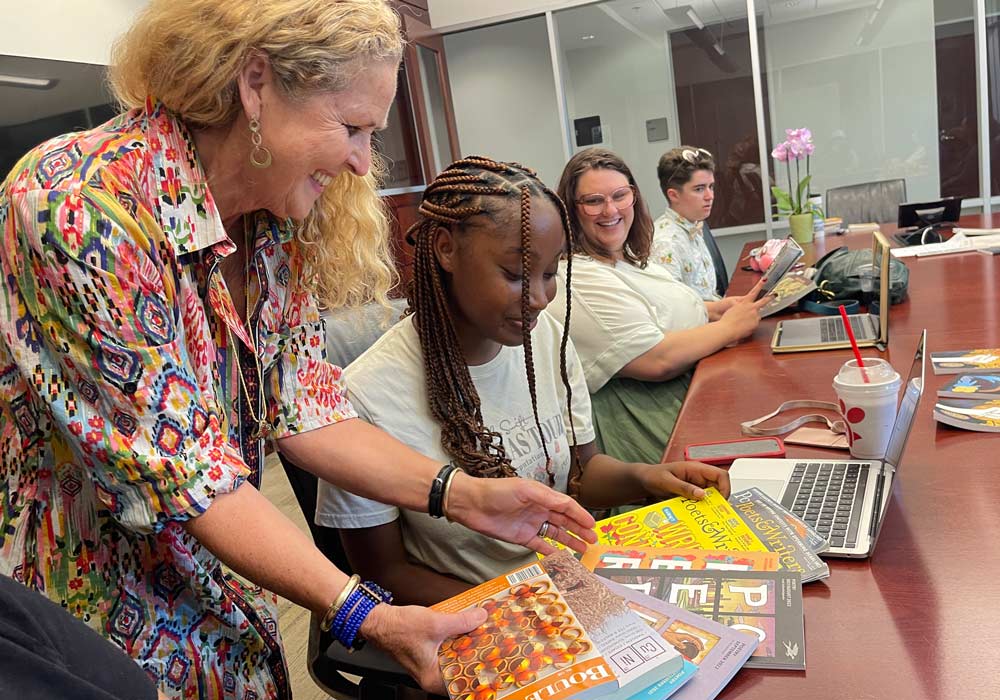The first thing on Ellen Malphrus' mind when she wakes up in the morning are her students — or, more accurately, their writing. She jokes that even though she's a fiction writer herself, the work of her creative writing students occupies more of her mind than her own.
Early in her career, she never imagined that she would be an educator. Her first teaching experience was substituting at an elementary school, which ended with her thinking she'd never be a teacher. Things changed when she became a teaching assistant during graduate school.
"I realized I love helping students open their view toward the path to finding their voice. It's a rush. It's very rewarding." says Malphrus, who was awarded the Carolina Trustees Professorship for System Campuses award.
Over the last 25 years teaching in the Department of English at the University of South Carolina Beaufort, she's experimented with all kinds of pedagogical approaches, but her teaching outlook has always been simple — empower students. She does this by giving her students technical knowledge, exposing them to different writing styles, and helping them believe in themselves and their writing.
"It's an incredible feeling to know that you are making a real and specific difference in somebody's life."
Creating a comfortable environment where students feel safe to share their thoughts is imperative to her teaching style.
"Undergrad is so overwhelming for everybody. You're just figuring yourself out," she says. "Some students come to a classroom and have been fortunate enough to have a background where they have self-confidence and self-esteem, but that is not always the case. It's a challenge to help students see I really do care about what they have to say."
Malphrus wanted to make creative writing more accessible for students of all majors. She worked with her department to make creative writing a minor and design two courses — a course where students produce the USCB's literary journal, The Pen, and an introductory creative writing workshop course.
"I love when students that wouldn't usually take creative writing courses because it may not make a direct impact on their day-to-day life and job ... expose themselves to other classes, other cultures, other books, other places, all of that stuff feeds into who you are and who you become."
The Pen has attracted many students who would not traditionally take a course centered on writing. The interdisciplinary nature of the submission-based journal has allowed for its pages to be a place where diversity thrives. Malphrus takes pride in helping the students collaborate and building the journal from the ground up.
"It's a very gratifying feeling to have your stuff in print," she says. "It's a great source of pride for them to have their work in something that people around campus and the community. Those are the kinds of things that do empower you to feel like your voice matters."
Her passion for her students' work doesn't end when they leave her classroom or even college. "It's an incredible feeling to know that you are making a real and specific difference in somebody's life," she says. "Students thank me for helping them find a voice. I love witnessing them blossom beyond our little workshop group in class."
